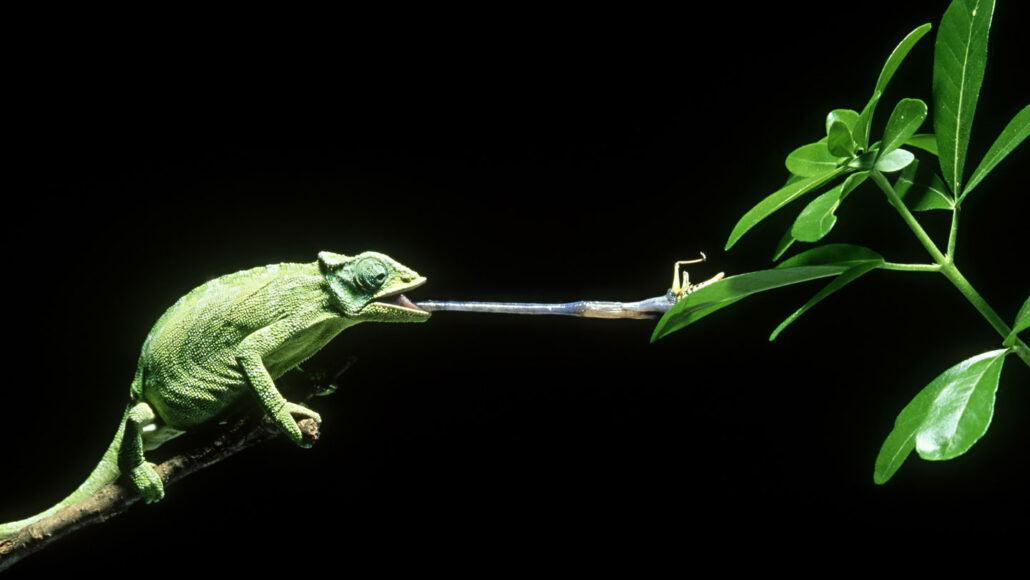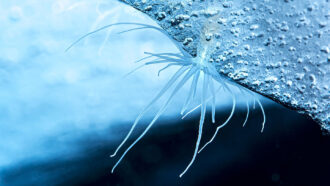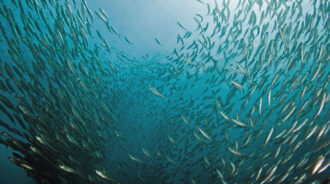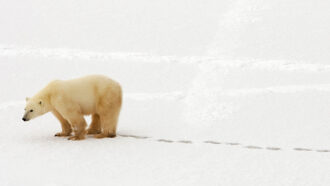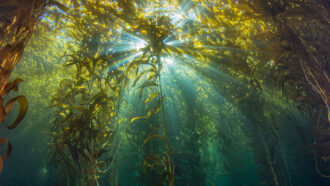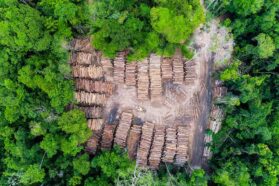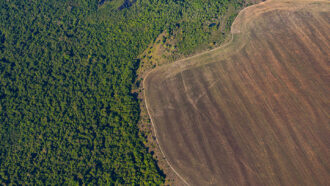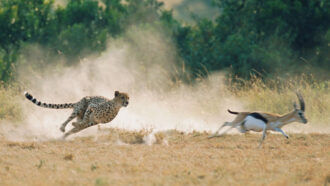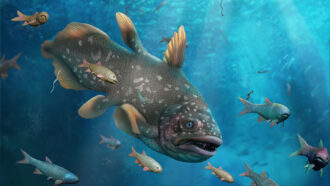defense: (in biology) A natural protective action taken or chemical response that occurs when a species confronts predators or agents that might harm it. (adj. defensive)
digest: (noun: digestion) To break down food into simple compounds that the body can absorb and use for growth. Some sewage-treatment plants harness microbes to digest — or degrade — wastes so that the breakdown products can be recycled for use elsewhere in the environment.
ecosystem: A group of interacting living organisms — including microorganisms, plants and animals — and their physical environment within a particular climate. Examples include tropical reefs, rainforests, alpine meadows and polar tundra. The term can also be applied to elements that make up some an artificial environment, such as a company, classroom or the internet.
evolution: (v. to evolve) A process by which species undergo changes over time, usually through genetic variation and natural selection. These changes usually result in a new type of organism better suited for its environment than the earlier type. The newer type is not necessarily more “advanced,” just better adapted to the particular conditions in which it developed.
food web: (also known as a food chain) The network of relationships among organisms sharing an ecosystem. Member organisms depend on others within this network as a source of food.
insect: A type of arthropod that as an adult will have six segmented legs and three body parts: a head, thorax and abdomen. There are hundreds of thousands of insects, which include bees, beetles, flies and moths.
link: A connection between two people or things.
marine: Having to do with the ocean world or environment.
nutrient: A vitamin, mineral, fat, carbohydrate or protein that a plant, animal or other organism requires as part of its food in order to survive.
plankton: (sing. plankter) Small organisms that largely drift or float in the sea. Depending on the species, plankton range from microscopic sizes to organisms about the size of a flea. Some are tiny animals. Others are plant-like organisms. Although an individual plankter is very small, these organisms often form massive colonies, numbering in the billions. The largest animal in the world, the blue whale, lives on plankton.
predator: (adjective: predatory) A creature that preys on other animals for most or all of its food.
prey: (n.) Animal species eaten by others. (v.) To attack and eat another species.
salmon: A popular game fish that tends to live most of its life in the ocean, then enters coastal rivers (and freshwater) to breed and lay eggs.
species: A group of similar organisms capable of producing offspring that can survive and reproduce.
toxin: A poison produced by living organisms, such as bacteria, algae and certain plants (such as poison ivy). Bees, spiders, snakes and other animals also produce toxins. These are referred to as venoms.
